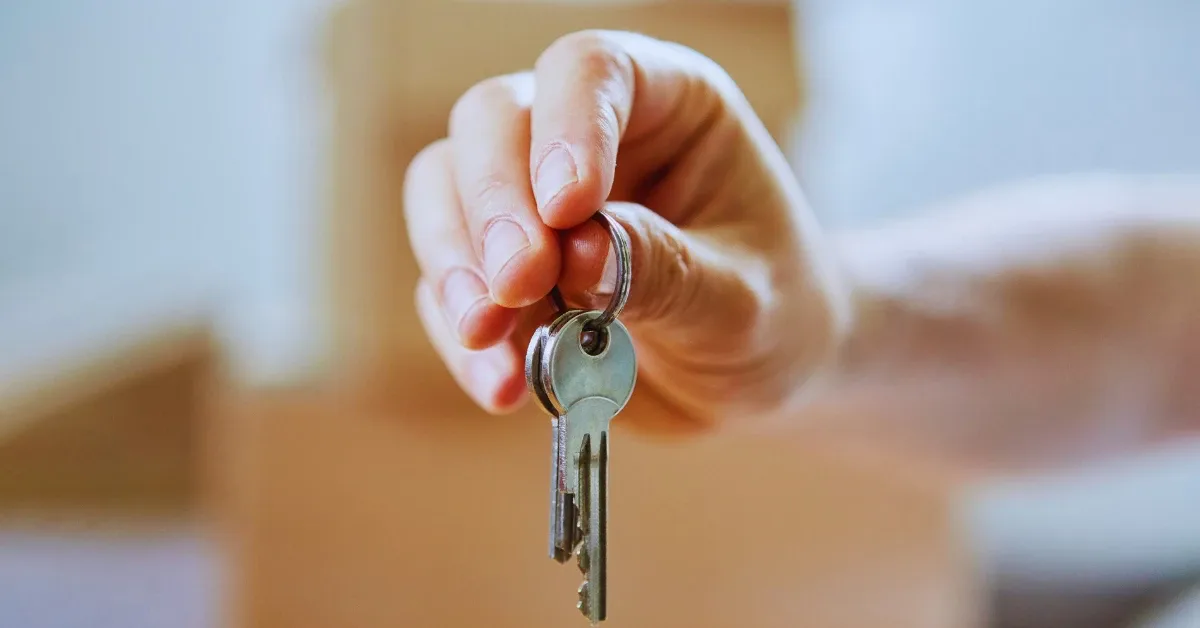Key Management: How Many Keys Should a Tenant Be Given?
A tenant should be given at least two keys to the rental property, one for the tenant’s use and another as a spare.
While it may seem like a trivial issue, it can lead to disputes down the line if not addressed properly. Giving your tenant access to the property is a delicate balance between safety and convenience.
It is important to remember that the tenant has a right to privacy and security, while you have the right to maintain and manage your property.
In this article, we will discuss everything you need to know about how many keys you should give a tenant and why.

Understanding The Key Policies Of The Landlord
Landlords have a responsibility to ensure that their tenants are provided with safe and secure accommodation.

In most states, landlord-tenant laws outline the expectations of landlords, especially with regard to providing access to the property. Some of the main provisions include:
- Landlords must provide tenants with keys to the property and the locks must be changed whenever a new tenant moves in.
- Tenants are prohibited from changing the locks without the landlord’s permission.
- A landlord can only enter the rental premises for certain purposes, like making repairs, attending to an emergency, or showing the premises to prospective tenants (with proper notice).
- If a landlord enters the premise without proper notice or justification, tenants can seek legal action.
Regulations That Landlord Must Follow Before Giving Keys To The Tenants
Before relinquishing keys to a rental property, the landlord must take certain precautions. Landlords should consider:
- Conducting background checks on potential tenants to ensure their safety.
- Collecting security deposits to cover damages to the property or unpaid rent.
- Reviewing rental agreements outlining policies on the use and maintenance of the rental keys.
- Completing a walk-through inspection with tenants to document the state of the property before giving out the keys.
- Stating the consequences of unauthorized possession, duplication, or relinquishing of the keys.
The Importance Of Clarity In The Lease Agreement Regarding Key Access
Clear communication between landlords and tenants about the key policies is fundamental, especially in the case of any discrepancies between both parties.
The lease agreement should be clear about:
- The number of keys provided to the tenants and the conditions of key duplication.
- The penalties for lost keys and any unauthorized duplication can endanger the security of other occupants.
- The manner in which any damages due to lost or duplicated keys will be resolved.
- Termination procedures require the return of the keys to the landlord or his representative.
- The landlord’s obligations are to maintain the locks or to change the keys in case of security threats.
Analyzing The Key Concerns Of Tenants
As a tenant, one of the concerns you might have is how many keys you should be given. It’s a valid concern that most people face.

A tenant needs to have access to the property, but too many keys pose a security risk for them, the landlord, and other tenants.
Let’s analyze the key concerns tenants face and the factors that influence key distribution to tenants.
Common Security Issues Encountered By Tenants While Managing Keys
One of the primary concerns tenants face when posed with this question is the safety of the property. Security is a top priority for tenants as it affects their safety and privacy.
The following are some common security issues that tenants might face while managing their keys:
- Lost or stolen keys compromise security.
- Unauthorized persons accessing the property with spare keys.
- Keys are being duplicated without proper authorization.
- Inadequate security measures that might lead to break-ins or theft.
The Tenant’S Right To Privacy And The Limitations Of Tenant Access
A tenant is entitled to privacy and the right to enjoy the property peacefully without any interference.
However, the distribution of keys must balance this entitlement with the landlord’s right to ensure the security of the property.
The following are some limitations to tenant access:
- Restricted access to common areas and private spaces such as storage rooms.
- The landlord’s right to change locks or access the property in case of emergencies.
- Tenants may not be permitted to make duplicate keys or share their keys.
- The landlord may choose to limit the number of people allowed to have access to the keys.
Pros And Cons Of Giving More Or Fewer Keys To The Tenant
The distribution of keys is not a one-size-fits-all, and it’s crucial to consider the pros and cons of giving more or fewer keys to tenants.
Giving More Keys To The Tenant
Pros:
- It offers convenience and flexibility for the tenant to access the property as they please.
- The tenant can provide access to family members, housemates, or friends.
- It can increase the security of the property as the tenant is more likely to watch over their space.
Cons:
- It increases the potential for lost or stolen keys, compromising security.
- Unauthorized persons can access the property with spare keys.
- The landlord has limited control over how the keys are used, leading to possible disputes or misunderstandings.
Giving Fewer Keys To The Tenant
Pros:
- It reduces the possibility of lost or stolen keys, mitigating security risks.
- The landlord has more control over the property’s access and key management.
- The tenant is more likely to be cautious about who they give their keys.
Cons:
- It can be inconvenient for the tenant to access the property, especially in emergencies.
- It limits the tenant’s ability to share their space with family and friends.
- It might lead to conflicts or miscommunication between the landlord and the tenant.
Frequently Asked Questions For How Many Keys Should A Tenant Be Given
What Is The Usual Number Of Keys That Should Be Given To A Tenant?
In general, tenants are given one set of keys for each person listed in the lease agreement.
Should Tenants Be Given Copies Of Keys To All Access Points?
Tenants should only be given keys to the access points that they are authorized to use.
Is It Necessary For Landlords To Keep A Copy Of Tenant Keys?
It is recommended that landlords keep a copy of tenant keys in case of emergency situations.
Can Landlords Charge Tenants For Key Replacements?
Yes, landlords are allowed to charge tenants for the cost of replacing lost or misplaced keys.
Conclusion
When signing that lease, remember you’re entitled to enough keys for every tenant and possibly a spare for emergencies.
Don’t shy away from discussions with your landlord about key provisions. After all, your access, convenience and safety are all part of finding your perfect rental home.
Reference
https://www.nyc.gov/site/hpd/services-and-information/tenants-rights-and-responsibilities.page